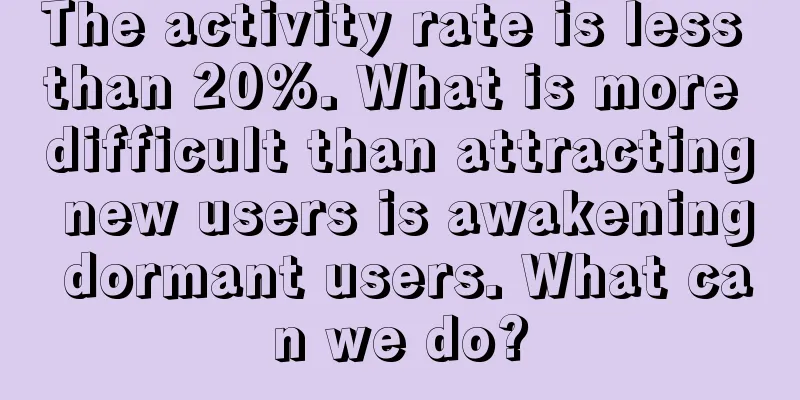Why can I finish two bowls of rice after swimming, but have no appetite after running?

|
Review expert: Shen Yingjian, Director of the Nutrition Department of Hebei Yanda Hospital Have you ever noticed that, although they are both exercises, some exercises can make people have a big appetite, while others can make people lose their appetite? For example, when swimming, even if you just soak in the water and swim a few laps, you will feel obviously hungry after getting out of the water; but if you run fast and are out of breath, you will not have the desire to eat for a long time. Swimming child Source | pixabay These two types of exercise that consume a lot of energy have completely opposite effects on people's appetite. Today, let us understand the reasons for this phenomenon. Why do I feel hungry after swimming? Swimming and running are both sports that consume a lot of energy, but the conditions in which they are exercised are different. One is in water and the other is on land. This is why the appetite after the two exercises is completely opposite. First of all, there is a temperature difference between the two. Generally, swimming pools are kept at a constant temperature, which is around 26 to 29 degrees Celsius regardless of spring, summer, autumn or winter. The normal temperature of the human body is 36 degrees, which will produce a temperature difference. At the same time, the thermal conductivity of water is greater than that of air. The body's own heat will quickly lose to the water, and the heat lost by the body will increase. The body will consume more energy to maintain its constant body temperature . In addition, the density of water is greater than that of air, and movement in water will encounter more resistance than on land. Therefore, it takes more strength to move in water, and the muscles involved in the exercise need to do more work to overcome the resistance of the water, which invisibly increases energy consumption . During this process, in order to replenish the lost heat and supply more energy, the human body will release more adrenaline through feedback regulation . Adrenaline source | pixabay Adrenaline provides more energy by promoting aerobic respiration and breaking down glucose taken into the body. It speeds up breathing, heart rate and blood flow, thereby ensuring the stability of human body temperature and providing energy for muscle movement. Individual differences may also affect how hungry people feel. Everyone's metabolism and the way their body adapts to exercise are different, so some people may feel hungrier after swimming, while others may not feel noticeably hungry. Why aren’t you hungry after running? So why don’t you feel hungry right after running? The first reason is neural factors. The second is the body fluid factor. The root cause of hunger is low blood sugar concentration. During exercise, glucose is consumed in large quantities, and the body will secrete glucagon to promote the decomposition of substances such as glycogen to produce blood sugar , thereby maintaining blood sugar balance and providing sufficient energy for exercise. After exercise, due to the lag in fluid regulation , the secreted glucagon causes substances such as liver glycogen to continue to break down and produce blood sugar, so blood sugar levels can remain normal. But after a period of time, glucagon is no longer secreted, at which time blood sugar levels drop sharply and people feel hungry. What kind of exercise suppresses appetite? Appetite is a very important problem faced by many people who are trying to lose weight. We all know that the trick to losing weight is to "control your mouth and move your legs." Although it sounds simple, it is very difficult to do. The body's protective mechanism will make us unable to move our legs when we control our mouths, and unable to control our mouths when we move our legs. In addition, some exercises will make people eat more, and after exercise, the appetite will increase greatly, thus entering a vicious cycle. Scientific research has found that the amount of food consumed after a short period of high-intensity exercise is significantly less than that after a long period of low-intensity exercise . In this kind of exercise, the oxygen inhaled by the human body is roughly the same as the oxygen required for exercise, and the efficiency of consuming glucose is higher. Appetite will increase greatly after long-term aerobic exercise, but low-intensity aerobic exercise, such as slow walking and strolling, will not affect appetite. In simple terms, long-term aerobic exercise will make you eat more, such as jogging, swimming and other physical exercises that are performed with sufficient oxygen supply. Strength training source | pixabay High-intensity, short-term exercise can reduce appetite, such as running, strength training, and HIIT, which we often see in short videos. These exercises are the best choice for fat loss because of their high intensity and appetite suppression. Therefore, we can choose different ways of exercise according to our own needs. If you just want to improve your health, then walking, jogging, etc. are all good exercises. But if you want to lose fat, then you have to feel exhausted and out of breath in a short time. |
>>: Cambridge women scientists: In an era of lack of recognition, they are the best
Recommend
3 tips to teach you how to easily build a user operation system!
1. Opening What is important in operations is a w...
2020 Jiangxi College Entrance Examination Schedule, Jiangxi College Entrance Examination Admission Ticket Printing Entrance Official Website
The Jiangxi Province College Entrance Examination...
WM Motor is recruiting strategic investors and has attracted a number of capitals to discuss cooperation
The automotive industry is very hot, and even in ...
Are people who love to eat meat more likely to develop colorectal cancer? Huaxi experts: There are also these 4 high-risk habits!
The recent weather Don't go out for a good me...
Solid info! The 5 most overrated bidding strategies
Search engine paid promotion provides marketers w...
Which industries are suitable for the Qutoutiao platform? July advertising overview
Qutoutiao focuses on "light reading", f...
Analysis of China Merchants Bank’s private domain operation strategy case!
As the traffic dividend has peaked, various indus...
How to carry out KOL operation and promotion?
Introduction: The operation of KOLs needs to be e...
Is "Internet+" the isatis root of China's economy?
Since the release of the government report at the...
The milk here has been poisoning people for more than 100 years, and the root cause is still unknown
When you arrive in a new place, your safety will ...
The colder it gets, the tougher it gets! What material is this?
Audit expert: Luo Huiqian Associate Researcher, I...
Google releases Android 12 Beta 2.1 update: fixes bugs such as blocking access to lock screen content
IT Home reported on June 24 that according to for...
Content operation: Learn the basic routines and play it however you want
Today, I will share with you how to do content ma...
The most exposed consumer traps on March 15: These pitfalls are hard to guard against when buying mobile phones
The elephants that once ran blindly have gradually...
Home appliance manufacturers' Internet-oriented transformation helps to consolidate their position as the first screen
As a traditional household appliance, television ...









